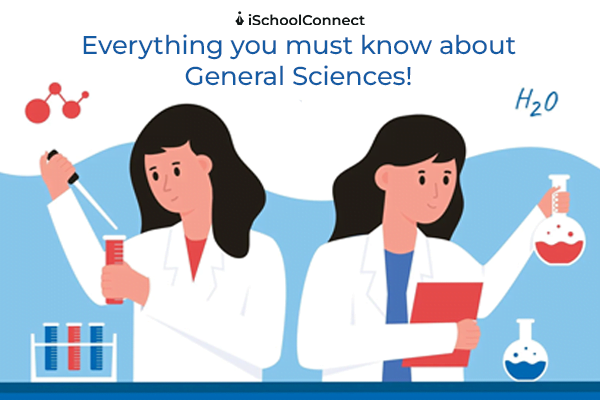Table of Contents
One of the oldest and most significant academic fields, general science, encompasses many topics. Because science is all around us, researchers, scientists, and medical professionals are passionate about the field. General science is a fascinating area of study that isn’t given enough credit.
This is why this blog is here to enlighten you on all the benefits you will reap from choosing this subject. Keep reading!
What is general science?
General science plays an important role in preparation for competitive examinations. Subjects like physics, chemistry, and biology are important for a general understanding of our surroundings.
This is a pursuit of knowledge that covers truths of fundamental laws. You can look for potential solutions to every problem by studying this subject. Scientists and researchers conduct studies and experiments to learn more about the natural world.
Benefits of general science
We have made great strides in the 21st century regarding our understanding and application of general science. Technology made automation possible, but science has given cures to diseases, increased knowledge of them, and brought so many opportunities to fruition!
Scientists use scientific procedures to get knowledge, carry out replicable tests to ensure their theory is true, and then communicate their findings to the rest of the world.
General science develops critical reasoning

Typically, scientific notions start with a hypothesis, which is tested by an experiment using specialized techniques and analysis. The scientific method requires a logical approach to challenging subjects, guaranteeing that students can understand how to connect theory and practice.
Finding the connections between theories and empirical data might help one’s cognitive abilities in various subjects and spheres of life. A lack of cumulative practice that comes with time spent studying general science can be blamed for the absence of critical thinking in many community areas.
Greater world understanding
This major has a stronger insight into how the world functions. For example, learning about friction, gravity, and the human body system. When studying tertiary-level subjects like biology, physics, and chemistry, pupils gain a more technical and in-depth understanding of our world. They also learn about how the universe came into being, including “the big bang.”
Without this information, we would be lost, terrified, and oblivious to what was happening in the world. Students can also develop answers to the difficulties the world faces using the knowledge they get from studying the topics.
Challenges our intellect

This may not be everyone’s cup of tea, but it is intriguing and thrilling for some. They enjoy the thrill of learning new theories and laws.
Since students use their minds more effectively and are continuously trying to understand complex concepts, they can look at things from a broader perspective that helps them succeed.
They also gain a more optimistic outlook on the world at a young age. Some students continue to study general science as their primary area of focus in universities, where they may one day work as professors and impart their expertise to others.
Diverse career possibilities
In the end, getting a solid job after graduation is the main motivation for students to attend school and graduate from institutions.
Graduates with a background in general science have a wealth of potential at their disposal. These possibilities extend outside the realm of this subject to other disciplines, including business, engineering, and medicine.
Science is the answer to our future
It’s difficult to imagine a facet of existence that doesn’t depend on science. It is a crucial component of many industries, including high technology, agriculture, and everything. To properly prepare the future generation for whatever may lie ahead, they should have a solid general science education.
For instance, general science-based intervention initiatives in schools appear to contribute to reducing smoking rates. Through this subject, students can learn about the risks of substance addiction and the environmental and medical repercussions of pollutants, such as tobacco smoke.
Read more: Best Study Abroad Consultants in Mumbai
Final thoughts
- An understanding of general science guarantees that the youth is not left behind by the constantly changing tides of the technological wave.
- A good grasp of this subject will open more doors for students.
- General science is a very broad subject that requires conceptual clarity to clear a competitive exam.
- Basic knowledge and logical thinking help in SAT subject tests and the scores required by some major universities in the US and Canada for undergraduate courses.
We hope you liked this blog and took some notes! See you next time.
You can reach out to us if you have doubts and comment below! We love to hear from you!
Liked this blog? Read: Best science books | Here are the books to satisfy your scientific quest
FAQs
1. How many general science courses are there?
There are four required general science-related courses (Physics, Chemistry, English, and Biology/Mathematics), and one optional course can be chosen based on interest.
2. What can I accomplish with a general science degree?
Family and general practitioners, registered nurses, dentists, medical scientists, and managers of computer and information systems are the top professions for graduates in this.
3. What distinguishes biology from life science?
Biology is the study of life and living things, but the term “life science” is used more broadly to describe any scientific investigation of life.







I want to study for free and work in canada
Hey,
You can check out our blog- How to study in Canada for free or on a low budget